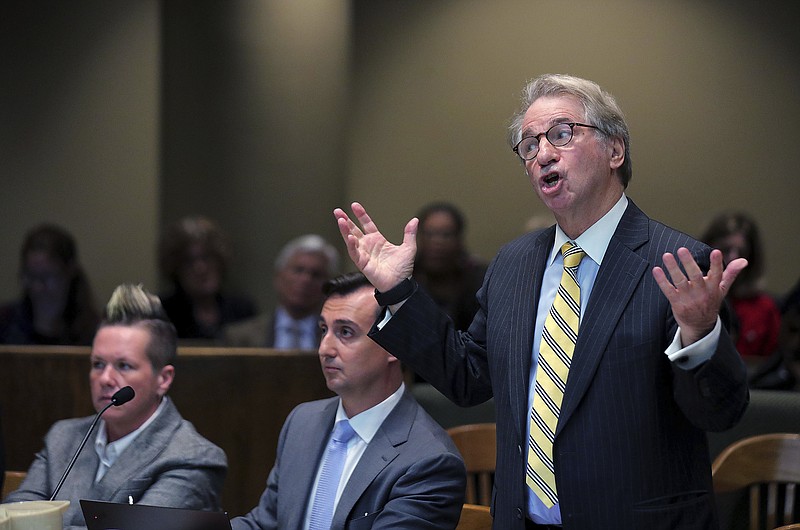MEMPHIS, Tenn. (AP) - A woman whose father was executed for murder in Tennessee 13 years ago asked a judge on Monday to order the testing of DNA evidence in the case.
The hearing in Memphis focused largely on whether April Alley can legally bring a petition for DNA testing on behalf of her father's estate.
Sedley Alley was convicted of the 1985 murder of 19-year-old Marine Lance Cpl. Suzanne Collins in Millington. She had been out jogging when she was kidnapped, beaten, raped and mutilated. Alley confessed to the crime, but later said the confession was coerced.
He was executed by lethal injection in 2006.
April Alley's attorneys include Innocence Project co-founder Barry Scheck, who told the court they filed the petition for DNA testing after law enforcement officers in St. Louis contacted him about a possible alternative suspect in Collins' murder.
Scheck argued that it was a matter of justice to test the DNA evidence, and the court has the power to order the testing.
"April Alley wants to know the truth. She has the courage to seek the truth. DNA testing can ... provide that truth," Scheck said.
Evidence they want tested includes a pair of men's underwear recovered at the scene. DNA testing of evidence was in early stages in the 1980s, and no DNA evidence has ever been tested in Sedley Alley's case.
Shelby County Assistant District Attorney Steve Jones argued the state's DNA analysis law allows only the person convicted of the crime to request testing.
He also argued that even if DNA from a third party were found on some of the evidence, it would not prove Sedley Alley was innocent. Alley was convicted based on "a combination of factors that corroborated his confession," Jones said.
April Alley was at the Monday hearing but declined to speak with reporters.
She and her brother witnessed her father's execution. They had their hands up against the glass as he spoke his last words, telling them he loved them and to "stay strong."
A spokesman for the district attorney's office said they are in touch with Collins' family, and the family has made no public statement on the DNA testing petition.
Collins was the daughter of a U.S. foreign service official. After graduating from high school in Virginia, she joined the Marines with plans of eventually becoming a pilot and was stationed at the former Memphis Naval Air Station in Millington.
Shelby County Criminal Court Judge Paula Skahan said she will rule on the petition on November 18.
Separately, April Alley's attorneys have written Gov. Bill Lee requesting he use his executive power to order testing. A spokeswoman for Lee said by email that he has no comment on the application.
